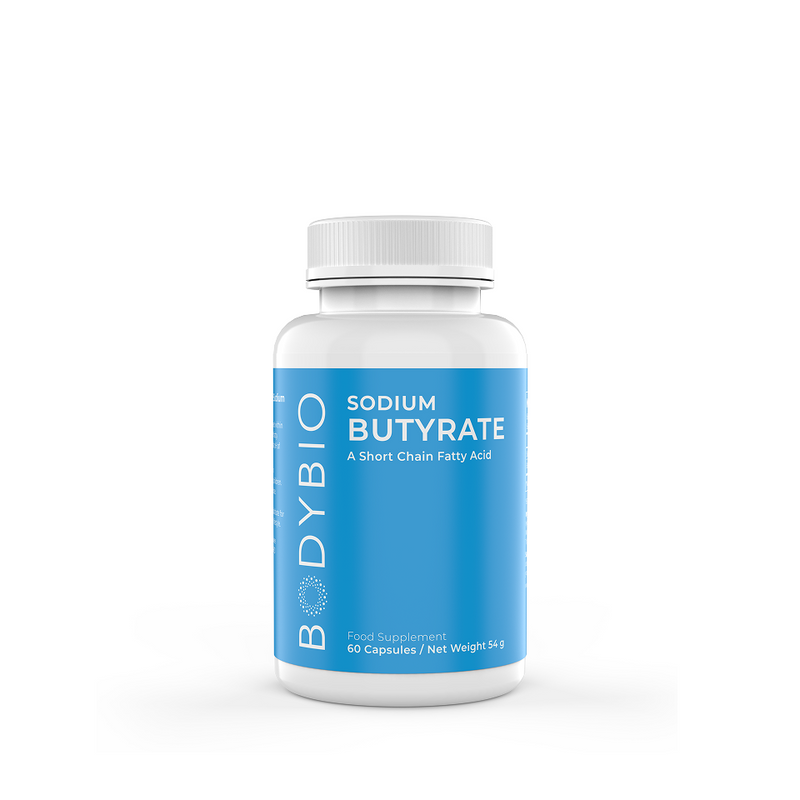How to Heal Your Gut with Realistic Diet & Lifestyle Tools
Key Takeaways:
Key Points:
- A healthy and well-functioning gut is a major factor in your present and future health. Understanding how to heal your gut in the modern world is one of the best ways to support blood sugar balance, weight management, and immune system function.
- Healing your gut requires a multi-faceted approach. We recommend dietary changes, lifestyle support, and targeted supplements.
- Some signs your gut is healing include frequent (and healthy) bowel movements, clear skin, less fatigue, and better nervous system regulation.
A healthy and well-functioning gut is a major predictor of your present and future health.
Here are a few reasons why…
- The way you digest and metabolize food directly impacts which nutrients get to your cells.
- Hormones like serotonin and GLP-1 are made in the gut, impacting mood, weight, and circadian rhythm. GLP-1 can even communicate with the microbiome.
- Good microbiome health has been tied to weight management, blood sugar regulation, and a healthy immune system.
If your gut is imbalanced, you know exactly how daily symptoms can influence your quality of life.
And it’s not just frequent bathroom trips or stomach cramping — it’s the acne breakouts, brain fog, and constant fatigue. The problem might be your gut, but the consequences are a full-body experience.
But fixing your gut imbalance isn’t as complicated as you think.
From the microbiome to the intestinal wall, let’s explore tools, resources, and strategies to heal your gut for good.
Table of Contents:
- Signs Your Gut Needs Extra Support
- How to Heal Your Gut Holistically
- Signs Your Gut Is Healing
- Your Gut Is On Your Side
Signs Your Gut Needs Extra Support
Is your gut out of whack? Chronic gut issues don’t always manifest as frequent bathroom trips or uncomfortable constipation. They often develop alongside other chronic illnesses, too. Here are some symptoms of declining gut health to watch out for:
- Acne
- Constipation
- Weight changes
- Mood disorders
- Food sensitivities
- Fatigue
- Bloating
- Frequent yeast infections
- Heartburn
- Inflammation
- Joint pain/stiffness
- Chronic illness
How to Heal Your Gut Holistically
Let’s be honest, there wasn’t just one food or toxin exposure that sent your gut health reeling. (Even though it might seem like that one dodgy street food you ate was what started it all.) It was likely a combination of many things over time.
In the same way, there isn’t one miracle supplement that’s going to heal your gut. The digestive system is extremely complex, and you need a multi-faceted approach for long-term improvement. Here’s what we recommend:
1. Probiotics to Heal Your Gut After Antibiotics
We don’t always recommend probiotic supplements. Without adequate fiber in the diet and a supportive ecosystem, healthy bacteria struggle to survive — even when supplemented. Plus, it’s hard to know what specific probiotics your gut needs. However, antibiotics are the exception. You need to take a good probiotic during and after antibiotic use for gut microbiome recovery.
This is because antibiotics are the equivalent of an atomic bomb to your beneficial gut bacteria. Without probiotics, you may notice an increase in fungal or yeast infections, nausea, and bloating after antibiotics. If you must take antibiotics, it’s important to bring your microbiome back to homeostasis with the healthy bacteria found in probiotic supplements and probiotic foods.
2. Phospholipids
Phosphatidylcholine (PC) is the major bioactive phospholipid found in the GI tract. One study looked at patients with ulcerative colitis and found a significant decrease in phosphatidylcholine levels, reducing protective mucus in the gut. Imbalanced levels of phospholipids like phosphatidylcholine also increased inflammation in people with chronic gut issues.
Supplementing PC can support a healthy gut lining and create a healthy environment for your microbiome to thrive.*
3. Nervous System Health
It’s extremely difficult to heal your gut if you’re experiencing chronic stress. First, the central nervous system (CNS) communicates closely with the gut — constantly sending signals about your safety and possible threats around you. Second, chronic stress activates fight or flight, which can tell the gut to empty itself immediately or send nutritional resources to other parts of the body — away from digestion.
To calm your nervous system, you can try somatic exercises, emotional freedom technique (EFT) tapping, diaphragmatic breathing, or gentle outdoor exercise. Make sure you eat in a peaceful environment (not standing up or at your desk at work) and take time to check in with your body.
4. Increase Vitamin and Mineral Intake
We might be mindful of our mineral and vitamin absorption needs from a full-body perspective, but we often forget that these nutrients are involved in the digestion process, too. A lack of vital nutrients could increase digestive issues and put your gut under unnecessary stress.
To understand if nutrient deficiencies are leading to gut issues, you can take a Hair Tissue Mineral Analysis (HTMA) to review your unique vitamin and mineral profile. You can also run blood tests with your primary care provider or work with a functional medicine provider to dive into nutritional and fatty acid testing.
5. Consume Essential Fatty Acids
Similar to PC, omega-6 fatty acids and omega-3 fatty acids build integrity in the gut lining and digestive system. Research shows that increased levels of these healthy fats help increase the diversity of good bacteria in the gut.
In our modern world, heavily processed seed oils expose us to large amounts of omega-6 fatty acids. This offsets the natural ratio of omega-6 fatty acids to omega-3 fatty acids and may lead to an inflammatory response in the gut. To fix this, we recommend removing seed oils from your diet and temporarily supplementing with omega-3 fatty acids, like high-quality fish oil, alongside healthy sources of omega-6 fatty acids, like organic nuts and seeds.
6. Eliminate Foods with Care
For many years, elimination diets were considered the holy grail for healing your gut. But many of these diets just remove problem foods (and nutrient sources) without getting to the root of why your gut is unhappy. Yes, it may be necessary to remove some foods for some conditions for a short time, but do so with care. You want to make sure you’re still getting good nutrition from whole food sources and consuming enough calories.
Elimination diets are meant to be temporary, and there are many cases where problem foods can be replaced by a healthier and more nutrient-dense version of that food. For instance, substitute highly processed dairy for A2 dairy or raw dairy. Processed flour can be replaced with European flour (unbleached and unbromated) or a locally milled ancestral flour blend.
7. Remove Processed and GMO Foods
Highly processed foods are filled with preservatives, dyes, and even carcinogens that do nothing to support a sensitive gut. These foods can also trick us into thinking we’re getting enough nutrients when we’re really just getting empty calories (there’s a big difference!).
Removing processed foods from your diet comes down to knowing a handful of staple recipes and planning your meals. There may be situations when you’re out or traveling where you have less access to fresh meals, so do the best you can in those situations. But when you’re eating at home, replace processed foods with high-quality meat, veggies, and whole grains.
8. Avoid Trigger Foods
Yes, even healthy trigger foods. In patients with irritable bowel syndrome (IBS), it’s common for salad greens and other high-fiber foods to cause digestive distress. You should never force these foods on your body in the name of health. Instead, find ways to slowly nurture your microbiome so you can add these foods back in. The low FODMAP diet may be helpful, depending on your condition.
If you’re reacting to a food or food group, you’re probably not absorbing its nutrients well anyway. It’s best to lay off the food and focus on building structure in the microbiome and gut lining before returning to that food.
9. Targeted Supplementation
You need nutrients to build structure and integrity in your gut lining and healthy bacteria to revive your gut microbiome. As you work on your diet and lifestyle, these nutritional resources can be added through targeted supplementation. We recommend a multi-faceted approach that includes strain-specific probiotics (like Akkermansia and other keystone species), butyrate (a short-chain fatty acid and postbiotic), phospholipids, and essential fatty acids.
Signs Your Gut Is Healing
How to know you’re doing it right.
- Regular bowel movements. Aim for 1-3 healthy bowel movements per day.
- Fewer (or no) yeast infections. This may be a sign that yeast levels are balancing in the gut.
- You’re able to tolerate more food. A healthy gut should be able to tolerate most foods and food groups with minimal symptoms.
- You feel less nauseous. Morning nausea is a thing of the past, and you enjoy exploring new foods.
- Fewer skin issues. Acne breakouts, psoriasis, and rashes can all stem from an unhealthy gut. As your gut heals, you may notice less of these breakouts.
- You have more energy. It takes a significant amount of energy to digest food. And even more energy to digest it with gut dysbiosis.
- Your mental health improves. The gut-brain axis is in charge of communication between the digestive system and the brain. For this reason, our mood is often connected with gut health.
- You experience less inflammation. Gut permeability is likely to increase levels of inflammation and toxins in the body. As your gut lining heals, fewer toxins enter the bloodstream, meaning less inflammation.
Your Gut Is On Your Side
If you’re dealing with diarrhea, inflammation, and fatigue just from eating a salad, it’s easy to feel like your body is working against you. But this isn’t true.
With the influx of toxins, processed foods, and environmental pollutants going into your system, your body is actually doing an amazing job of regulating itself. The symptoms you experience are a signal from your body to you that it could use a little more support — and it’s an opportunity for you to take action.
Instead of trying another elimination diet or pharmaceutical drug, we recommend rebuilding your gut environment from the cells up. Nutrients are the easiest way to do this — and likely the most needed resource in your body.
Our nutrient of choice for gut dysbiosis is butyrate. It’s a short-chain fatty acid produced in a well-functioning gut — and most of us don’t have enough of it.
Butyrate helps build a healthy gut lining while supporting balanced blood sugar levels, cell differentiation, and even quality sleep.* We love it for immediate gut support since it rebuilds long-term gut structure while also mitigating active symptoms. And then you can get to work on a healthy diet, stress management, and other foundational pillars for real, lasting gut and full-body health.
Abdalqadir, N., & Adeli, K. (2022). GLP-1 and GLP-2 Orchestrate Intestine Integrity, Gut Microbiota, and Immune System Crosstalk. Microorganisms, 10(10), 2061. https://doi.org/10.3390/microorganisms10102061
Costantini, L., Molinari, R., Farinon, B., & Merendino, N. (2017). Impact of Omega-3 Fatty Acids on the Gut Microbiota. International journal of molecular sciences, 18(12), 2645. https://doi.org/10.3390/ijms18122645
Deol P, Ruegger P, Logan GD, et al. Diet high in linoleic acid dysregulates the intestinal endocannabinoid system and increases susceptibility to colitis in Mice. Gut Microbes. 2023;15(1):2229945. https://doi.org/10.1080/19490976.2023.2229945
Stilling, R. M., van de Wouw, M., Clarke, G., Stanton, C., Dinan, T. G., & Cryan, J. F. (2016). The neuropharmacology of butyrate: The bread and butter of the microbiota-gut-brain axis?. Neurochemistry international, 99, 110–132. https://doi.org/10.1016/j.neuint.2016.06.011










